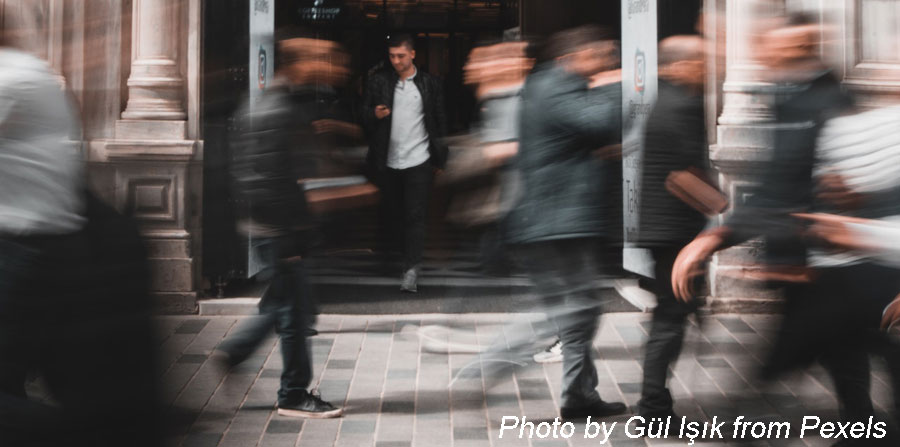The fourth of Frank Ostaseski’s Five Invitations is to find a place of rest in the middle of things. I have to smile at this one. I’m forever thinking, “Once I get through this [project, deadline, situation, event, et al], then I can relax and enjoy myself.” Ostaseski encourages us to find rest within us no matter what’s going on in our lives.
When we are caught in a scarcity-driven mentality in which we believe there’s not enough time or resources for our needs, we can become trapped in a prison of our thoughts. We fuss and stress and worry and obsess. We treat our lives as something to be passed through. We tumble from one moment to the next. We forget that the cell door was never locked. We can get out any time!
We find rest when we are present for what happens right here, right now rather than let our minds wander the halls of fear and anxiety. It comes when we focus on what is important and not what’s urgent or insistent. It comes when we break the habit of busy-ness and let loose our fear of boredom and addiction to exhaustion. It comes when we give ourselves permission to experience a Sabbath without chastising ourselves for being idle. Rest is not a luxury. It is crucial for our physical, mental, and emotional health.
We cannot force ourselves to rest. That attempt becomes just another task on the “to do” list. But with mindfulness, we can learn to ease up on the thoughts and impulses that obstruct our contact with rest. Ostaseski points out three common poisons:
- Craving (greed) which fuels the false assumption that what we have is not enough
- Aversion (hatred) which proceeds from the mistaken belief that we can separate ourselves from all other life that calls this planet home
- Ignorance (delusion) which serves to disconnect us from reality and from our pain
Mindfulness serves as the antidote to these poisons. It enables us to explore the causes and conditions of our circumstances and respond skillfully to them. Ostaseski asks that we be open to how life unfolds; rest means allowing. Irish priest and philosopher John O’Donahue said it beautifully:
“We need to come home to the temple of our senses. Our bodies know that they belong… it is our minds that make us homeless.”
We come home as we sense the breath’s texture, rhythm, and pace. We give ourselves permission to slow down, to take in our surroundings, and feel our connection to the ground of being. Instead of striving and struggling, we find rest, restoration, and revitalization.
Ostaseski warns that mindfulness is not something to be “achieved.” He does not encourage numbing out as a means of grasping tranquility. Rather, it’s an awareness of what is happening. It welcomes thoughts, strong emotions, and associated energetic patterns without getting ensnared by them. It takes notice and then lets them dissipate on their own volition. Mindfulness is a means of becoming intimate with our inner landscape.
Life is precarious. We are encouraged to sustain a courageous practice when fear comes knocking. We can learn to discern the difference between the feeling of fear and the mental process that riffs off it. With love, we can learn to be steadfast, undefended, and vulnerable in its wake and come out stronger on the other side.
